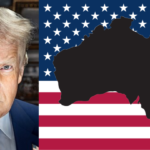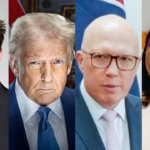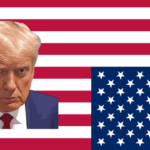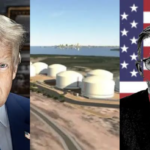Australia Rejected Dutton’s Trumpism, But Albanese’s Embracing the Real Thing
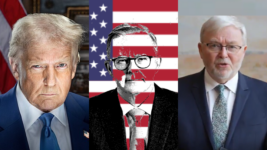
The message at the May 2025 Australian ballot box was clear, the nation overwhelmingly rejected Peter Dutton’s brand of Trumpism that he’d spruiked in kicking off his campaign and attempted to renege on once his ratings dropped to the ground, however a returned Anthony Albanese is only set to embrace America into our domestic sphere like no other Australian PM before him.
Dutton was offering the nation the same assault on its domestic sphere as the US president and billionaire Elon Musk unleashed upon that in the USA: attacks on the public service, social services and minority groups. But while the US constituency did vote in favour of Donald Trump’s campaign posturing, it would likely have rejected the delivered product, whereas voters here got a preview.
The return of Labor, however, marks the continuation of what it achieved during its last term in office, which was increasing capitulation to growing US inroads and control over local territory and the military, and with this spiking US dominance, coupled with our escalating militarism, the “antiwoke” Trump agenda will progressively influence our domestic sphere even without Dutton.
Most telling is the advertisement that Australian ambassador to the US Kevin Rudd posted to X three days after the election, showcasing himself not only revelling in our “rock-solid partnership” with the US, but also our nation’s commitment to invest $1 trillion into the States over coming years, which will create 100,000 American jobs, and this, the former PM adds, “is just the beginning”.
On day that Rudd was doing his thing on social media, the Australia Institute released figures showing 54 percent of the country wants a more independent foreign policy, while 57 percent considers Trump is bad for us, with the indication being that Dutton’s Trumpism cost him his job.
But in terms of the institute’s suggestion that a post-election Australian government reimagine our relationship with the US post-election, well, if one listen’s closely, one can almost hear the PM whispering, “Suck it up.”
Indo Pacific’s Deputy Dawg
“Australians and Americans have always been a special team. Our partnership was forged side-by-side on the battlefield,” says Rudd in his clip, spruiking what Australia has to offer to the US public. “In 2025, we are building even more together. The AUKUS agreement is driving billions in US military investment and is securing a free and open Indo-Pacific.”
These two seemingly simple statements from Kev, however, carry quite a lot of baggage.
Australia turned to the US during World War II, as an imperial power that might provide us with protection, as the British Empire was crumpling, which saw our nation enter into the 1951 ANZUS security pact with the US that, unlike the 1949 NATO treaty does for its European partners, does not guarantee any military support from Washington for an Australia under attack.
But, as IPAN’s Peoples Inquiry report notes, this has guaranteed Australian bodies on the ground fighting alongside American troops in US led battles ever since. This commenced with Korea, then Vietnam, onto the Gulf War, the Afghan War, the Iraqi War and in the provision of support against Syria and Yemen.
Right now, our nation is a major player in the coming war against China. This potential conflict, that’s expected to be the mother of all wars, has this country taking a frontline position in the Indo Pacific, with the US investing heavily in its own military infrastructure on this continent, and with no guarantees that Washington would stick around if Australia was under attack.
On a wing and a prayer
As for those investments that Rudd was getting all giddy over, well, there is the AU$4.6 billion that Australia is investing into the US submarine manufacturing base. Our defence minister Richard Marles flew to the US to hand over the initial AU$800 million downpayment on this deal to newly incumbent Trump administration US defence secretary Pete Hegseth in early February.
In exchange for this, Australia gets the promise that the US might speed up production on Virginia class nuclear-propelled submarines (SSNs) because if it achieves its goal of a fleet of 66 such subs by the 2030s – it currently lacks 17 of them – Washington has promised to sell our nation at least three second-hand Virginia boats. Although it can too renege on the deal, no questions asked.
The AUKUS (Australia, UK and US) security pact was struck in September 2021. The then Morrison government sold it to the public, and federal Labor, on the promise that it would see our nation acquiring eight of its own SSN. But four years on, and it’s clear that not only are the US boats unlikely to appear, but the five AUKUS SSN produced with UK assistance appear to be in jeopardy too.
But while Kevin is focused on our investment in the US, Washington is doing some heavy investing on this continent, and as for the lack of SSN that’s been created, AUKUS also involves the establishment of joint Submarine Rotational Force-West at Western Australia’s HMAS Stirling, which will be a permanent rotating SSN presence of 1 UK and 4 US subs, which should suffice for the war on China.
This will also see around 700 US military personnel and their families stationed on Noongar Country in and around Boorloo-Perth.
Over his time in office, Albanese has committed Australia to a $368 billion investment in the illusive AUKUS subs, which if progressed guarantees an ever-shrinking social sector, the US is upgrading RAAF Base Tindall to house six US B-52 bombers, which could be nuclear-equipped as our policy is US warhead-ambiguity, and he’s permitted Australia to be deemed a domestic military source in US law.
Prior to this, the 2014 Force Posture Agreement established three US force posture initiatives on this continent: the stationing of 2,500 US marines near Garramilla-Darwin, increasing interoperability between the US and Australian air forces, and the US has unimpeded access to a classified list of local military facilities and areas, of which it takes complete control of if it decides to upgrade one.
“American force posture now in Australia involves every domain: land, sea, air, cyber and space,” bragged deputy PM Marles during the last AUSMIN conference with the Biden administration in August. Force posture provides the ability to launch military action from outside of a nation’s own jurisdiction. And regardless of the coming of Trump, the defence minister is likely still bragging now.
Two peas in a Trumpian pod
The one trillion dollars Australia is investing in the US comprises of money from Australian pension funds, which have already handed over $400 billion, with the expected further $600 billion set to be invested over the next 10 years, explains Rudd during his clip, and he adds that Australian companies operating in the US are now employing over 100,000 of US citizens on American soil.
“Our record high two-way trade is creating American jobs and fuelling economic growth,” Rudd continues in his sales pitch, “and is powering the future, supplying the critical minerals the United States needs for domestic energy and manufacturing.”
Albanese passed the Defence Trade Controls Amendment Bill 2024 which has created a licence-free military export environment between this country, the US and the UK. The US then passed a law that established Australia as a domestic military source, which opened up privileged access to critical minerals that, as Rudd appears to suggest, doesn’t streamline access solely for military reasons.
All these increasing inroads of American presence on this continent, coupled with our ever-increasing military and economic partnerships, will undoubtedly lead to the Trumpian domestic agenda influencing the Australian domestic sphere.
Indeed, Trump’s antiwoke agenda has already seen his administration cut funding ties with six Australian universities, because their employment policies continue to have a commitment to hiring diverse workforces and they too recognise diverse genders.
The White House, however, has abolished diversity hiring and now only recognises two sexes in law, so it has been attempting to influence those tertiary institutions in this country to do the same via the exertion of financial pressure, and it’s likely this approach will extend into other sectors in the future.
So, the downfall of Dutton poses no concern to Trump, as the US president doesn’t need an imitator in terms of a local PM, as what he does need is exactly what he’s got, and that is a yes man, willing to capitulate to his every whim, and as for his antiwoke agenda, the US has quite a talent in influencing foreign domestic spheres, going back all the way to sponsoring the 1954 Guatemalan coup d’état.


